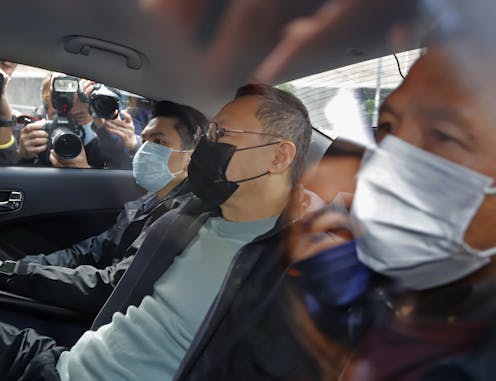With mass arrests, running for office in Hong Kong is now not only futile, it can be criminal
- Written by Brendan Clift, Teaching Fellow and PhD candidate, University of Melbourne
 AP/AAP
AP/AAPNearly overshadowed by the chaos in the US this week was a dramatic escalation of the crackdown on pro-democracy activists in Hong Kong.
Authorities arrested more than 50 pro-democracy figures in early morning raids under the territory’s six-month-old national security law. The opposition lawmakers, activists and lawyers were accused...

















